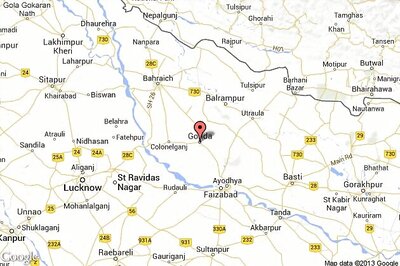
views
New Delhi: Born in a dusty village in Haryana to illiterate parents, Swami Ramdev heads a $ 40 million-a-year global yoga empire, owns an island off the coast of Scotland and has government ministers scurry to meet him on the steps of his private jet.
Trained in the ancient discipline of posture and breathing exercises, Ramdev has soared from spiritual scholar to national household name with a heady mix of yoga and social activism.
On Saturday, he began a fast to the death to demand reforms including the death penalty for corrupt officials in an anti-graft campaign that has undermined an embattled Prime Minister Manmohan Singh.
Dressed like a holy man but adored like a movie star, 30 million people tune in every day to Ramdev's television show and hundreds of thousands flock to his workshops and yoga camps across India, North America and Europe.
From his sprawling complex in the foothills of the Himalayas, Ramdev's businesses include schools, drugs and plants, and he ships $ 500,000 worth of books and CDs each month.
His yoga demonstrations, filled with crowd-pleasing stunts such as headstands or making his belly dance inside his ribcage are often punctuated by rambling lectures on corruption, black money or the government's failure to tackle Maoist rebels.
He says the government enforces imperialist laws implemented by the British, calls for the corrupt to be hanged, says foreign firms should be banned from India and urges a revaluing of the rupee.
But while some of his views appear outlandish, his outspoken positions on homosexuality, which he says is a curable mental illness, and sex education to prevent HIV and AIDS, which he says should be withdrawn from schools and replaced by yoga, leave many feeling uncomfortable.
And now, after almost a decade of improving his viewers' health, the pony-tailed guru has turned to India's ailments.
Ramdev, whose millions of followers initially fell for his pre-dawn yoga but now increasingly empathize with his politics, is on a corruption crusade that has the government of the world's largest democracy over a barrel.
In a tent larger than four football pitches built for his hunger strike against corruption in the heart of New Delhi, Ramdev, clad in a saffron-coloured robe slung loosely over his chest, lectures the government on the path of redemption.
Corrupt officials should be executed, illegally expatriated money returned and the rupee reissued, he proclaims to the adoring crowd, as senior government ministers nervously wait in a five-star hotel suite for a meeting to beg him to stop.
"If the entire black money is brought back to the country, then poverty will be abolished and India will prosper," Ramdev tells the cheering crowds.
"Indian currency will be stronger than the dollar and pound. India was once the leader in every sphere of the world. It was economically most strong and had rulers who were virtuous ... Now our country is at the bottom of every development index and at the top of corruption, population explosion, poverty and crime."
Yet there is some basis to his seemingly eccentric views. India first began drafting anti-corruption legislation in the 1960s. It has still to reach the statute books.
Rags to riches
While Ramdev does not disclose his age, media reports suggest he was born in 1965, to a poor family in a village in Haryana.
After studying yoga practices and other spiritual disciplines, his big break came in 2003 when Aastha TV, India's most popular faith channel, offered him the early morning slot that he still occupies today. He never looked back.
Waking at 3 am every day, Ramdev attributes his 18-hour working day and healthy mass of facial hair to a strict diet of milk, green vegetables and seasonal fruit.
Mobbed wherever he goes, by fans and the media, and feted by the government when he arrived in the capital this week, Ramdev's fast represents a major headache for the ruling party attempting to contain growing nationwide anger over graft.
Other activists have lead marches and protests through New Delhi's streets, and Anna Hazare, a 70-year-old campaign veteran managed to exact some promises from the government on the anti-graft Jan Lokpal bill when he fasted for five days in April.
But Ramdev is an altogether different animal. He has even pledged to challenge the ruling Congress party across all of India's 543 seats in 2014 election.
But Ramdev's outspoken stance at the head of a campaign against the alleged corruption at the heart of India's government, delivered with fiery eyes and gnashing teeth, may well see the guru bite off more than he can chew.
Senior ruling Congress party officials have called on him to chose between yoga and politics, while others have balked at his connections with far-right Hindu nationalist organisations.
Newspapers have begun to delve into the financial health of his charitable trust, and raised questions of how he acquired the land on which two yoga institutes are built.
Others simply point to Ramdev's apparent contradictions, such as television pictures of the guru who advocates the boycotting of foreign imports stepping down from his US-made private jet at New Delhi's airport on Wednesday.

















Comments
0 comment